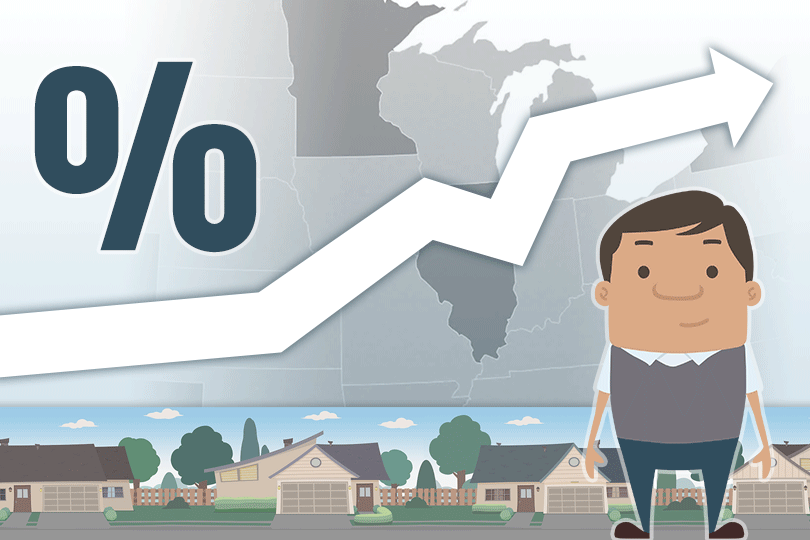Challenges of Buying a Home with High FHA Loan Interest Rates
July 2, 2023
The Impact of High FHA Loan Interest Rates
- Increased Monthly Payments
High FHA loan interest rates result in higher monthly mortgage payments. This can strain your budget and may limit your ability to afford a home that meets your needs and preferences. - Long-Term Cost
Over the life of your mortgage, the impact of high interest rates can be substantial. You'll end up paying significantly more for your home compared to someone with a lower interest rate. - Reduced Buying Power
High interest rates can limit your buying power, meaning you might not be able to afford the same home or neighborhood you initially had in mind.
Strategies for Dealing with High FHA Loan Interest Rates
- Improve Your Credit Score
One way to secure a more favorable FHA loan interest rate is by improving your credit score. This can be achieved by paying down existing debts, correcting errors on your credit report, and demonstrating responsible financial behavior over time. - Shop Around
Don't settle for the first FHA lender you encounter. Shop around and compare offers from multiple lenders. Interest rates can vary significantly between lenders, and a little extra effort can yield substantial savings. - Consider Other Loan Options
While FHA loans are a popular choice, they are not the only option available. Explore conventional loans, USDA loans, or VA loans if you qualify, as they may offer more competitive interest rates. - Make a Larger Down Payment
Increasing your down payment can help mitigate the impact of high interest rates. It reduces the amount you need to borrow, resulting in lower monthly payments and less interest paid over time. - Lock in Your Rate
When you find an FHA loan with an interest rate you're comfortable with, consider locking in that rate. This protects you from rate increases during the application process. - Refinance When Possible
Once you've secured your FHA loan, monitor the market for opportunities to refinance when interest rates are more favorable. Refinancing can help you reduce your interest rate and lower your monthly payments.
RELATED VIDEOS:
Annual Income Requirements for FHA Loans
Good Credit History Helps Get FHA Loans
Stay Informed About Your Mortgage Closing Costs

FHA Loan Articles
January 15, 2025Buying a condo with an FHA loan is an option some don’t consider initially, but it’s worth adding to your list of potential property types. FHA loans for condo units traditionally require condo projects to be on or added to the FHA-approved list. Still, changes in policy over the years allow borrowers to apply for FHA loans on condo units in projects not on the list on a case-by-case basis.
December 30, 2024When applying for an FHA loan, lenders will consider more than just your credit scores and history. They also look at other factors affecting your risk profile and the interest rate they offer you.
One factor is occupancy type. For FHA loans, this is straightforward because these loans require owner occupancy. Investment properties aren't eligible. While conventional loans may have different rates for primary residences, second homes, and investment properties, this isn't a concern with FHA loans.
December 18, 2024Did holiday spending get the better of you? Are you looking for ways to recover your spending plan as you search for a new home?
The holidays are a whirlwind of festivities, family gatherings, and gift-giving. But amidst the cheer, it's easy to lose track of spending. If you're aiming to buy a home in the near future, those extra expenses can have a bigger impact than you might realize, especially if you're considering an FHA loan.
December 17, 2024The Federal Housing Administration provides mortgage insurance on loans made by FHA-approved lenders, making homeownership more attainable for those who might not qualify for conventional loans.
While financial factors like credit score and debt-to-income ratio are key to loan approval, other non-financial aspects can also cause a denial.
December 11, 2024FHA loans, insured by the Federal Housing Administration, are a popular choice for many homebuyers, especially those who need a lower downpayment or more forgiving credit qualifying requirements. FHA loans are primarily intended for primary residences—homes that borrowers will occupy as their main dwelling.







